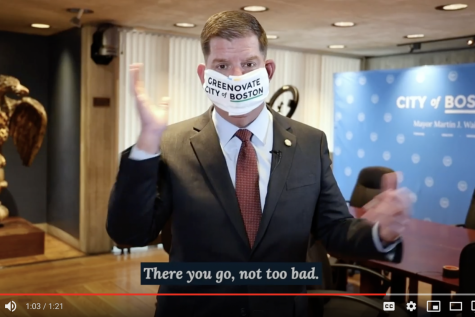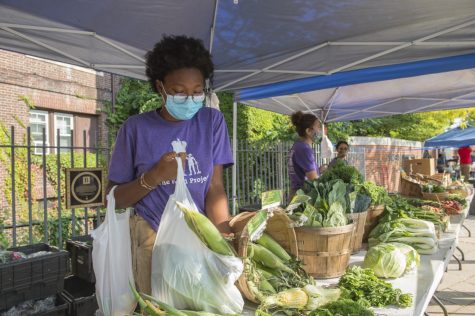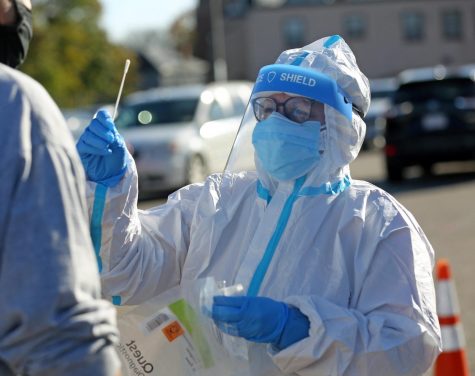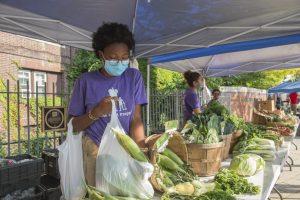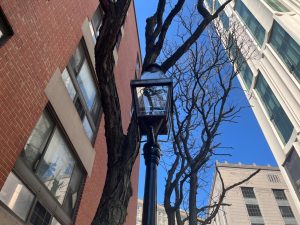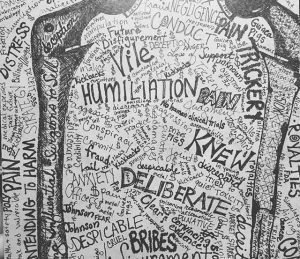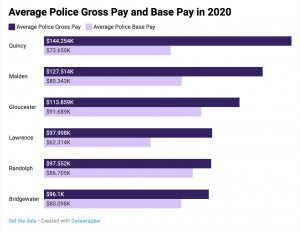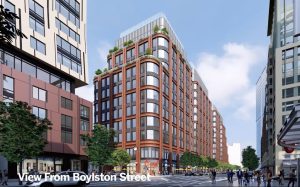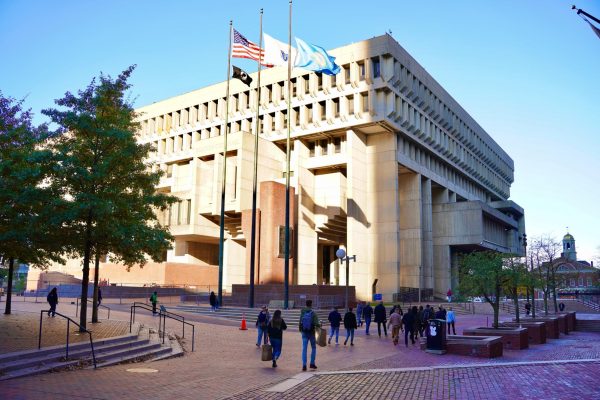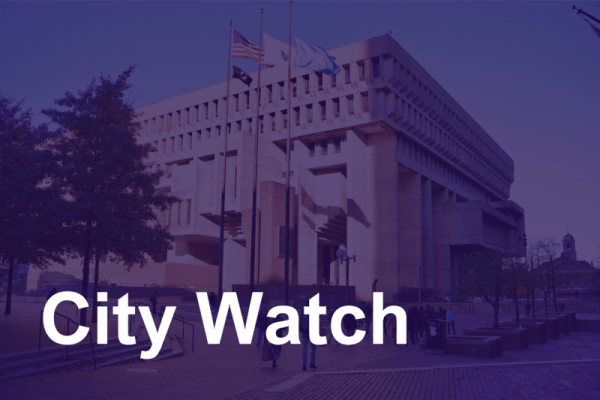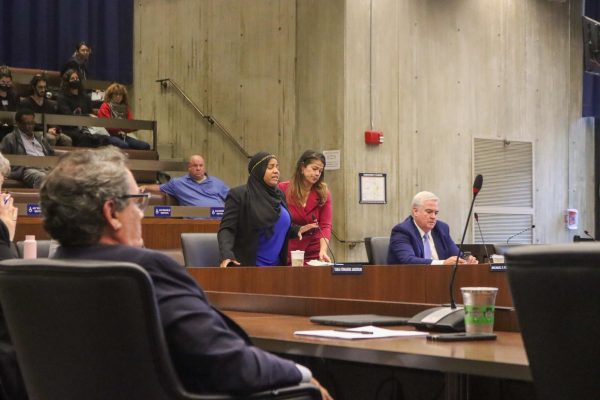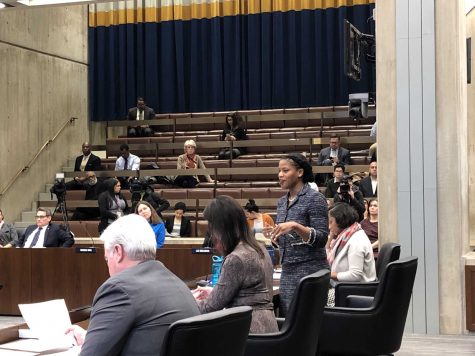City councilors discuss protection for tenants, rental assistance and police reform in latest meeting
March 8, 2021
Following an accident on a construction site in downtown Boston late February, Boston City Council met last Wednesday to discuss safety regulations that protect construction workers and prevent similar tragedies. They also discussed new funding for rental assistance to residents suffering from impacts of the pandemic and plans for expanding protections for tenants and ways to implement policy changes recommended by the state legislature to the Boston Police Department. The meeting was held online via Zoom.
Expanding protections for tenants under the Condominium Conversion Act – Docket 0238
Councilor Lydia Edwards recommended that the council pass an ordinance expanding protections for displaced Boston residents. The ordinance will amend the current Condo Conversion Act, making it more difficult for developers to displace Boston residents or fail to inform tenants of their rights, Edwards said.
The proposed amendments to the Condo Conversion Act will close loopholes and increase the benefits provided to those displaced, she said. Among these changes are increased benefits to displaced individuals in protected groups, such as seniors and people with disabilities, as well as a less substantial increase to benefits for tenants not in protected groups. While there isn’t a provision in the current ordinance for timeline, the amended ordinance will require that these benefits be paid within ten days.
The amendments will also require developers to file for a special permit when demolishing or converting buildings, which requires them to inform tenants of their rights. Edwards said that this is an “upstream attempt” to prevent violation of residents’ rights, and that the new ordinance also established a fine of $300 a day for developers that violate the Condo Conversion Act.
“This is really an exciting moment for us,” said Edwards of the amended ordinance.
Docket #0238 was adopted.
Implementation of the Boston Police Reform Task Force’s Recommendations and the State Police Reform Bill – Docket #0307
The committee on public safety and criminal justice previously held a hearing on Docket #0307 to discuss the continued need for transparency and accountability in the Boston Police Department. Despite the fact that members of BPD’s administration were invited to the hearing with weeks of notice, according to Councilor Andrea Campbell said, no representative attended to testify about implementation of these changes.
While the administration provided a letter regarding general updates about implementation, the updates did not include specific implementation plans or timelines, and there was no information about ongoing investigations regarding a BPD office who may have participated in the Jan. 2021 insurrection on the Capitol Building.
“All of this was intended to be discussed at the hearing and the administration and the department knew that beforehand,” said Campbell.
Campbell said that the hearing demonstrated the need to ensure that city administration is holding public servants accountable, and that the implementation of recommendations from the Boston Police Reform Task Force and the State Police Reform Bill are necessary to increase racial justice in policing.
Docket #0307 will remain in the committee on public safety and criminal justice, where Campbell said she will continue to push for more information and further involvement of police administration.
Campbell also addressed Docket #0409, a formal request for information from the police administration. As the BPD administration failed to provide information on current investigations or implementation of police reform measures, this docket calls on the Mayor to request the same information from BPD. The request gives the Mayor one week to confirm the existence of an investigation on the BPD officer involved in the Capitol insurrection, whether disciplinary action has been taken, and when the council can expect the investigation’s findings.
“I refuse to accept that Bostonians have to wait for answers about whether or not a Boston police officer participated in that violent attack on our national Capitol, and whether or not they are still patrolling our streets,” Campbell said.
Docket #0409 was passed unanimously.
Over $20 million to fund emergency rental assistance during COVID-19 – Docket #0262
The city of Boston accepted a grant of over $20 million from the U.S. Treasury, intended to provide emergency rental assistance to households that cannot pay rent or utilities due to the ongoing pandemic. Councilor Edwards said that this $20 million comes without some of the major restrictions that the Trump administration had implemented on who qualifies for rental assistance.
Previous grants for rental assistance could only be used for housing, while the new grant can be used for up to 12 months of unpaid rent and utilities, including Internet. Those who lost their job due to the pandemic since March 13, 2020 can qualify for assistance. Additionally, households that receive SNAP or other government assistance will automatically qualify for these benefits.
Edwards said that over $7 million in assistance has been distributed to over 1,700 households in Boston so far, largely in East Boston and Dorchester. The additional $20 million grant will continue to help these households.
“The fund is available, so we need to get people applying,” Edwards said.
The docket was adopted.
Order for hearing on construction site safety protocol – Docket #0398
Boston’s unprecedented building boom over recent years has resulted in a significant number of preventable casualties, Councilor Ed Flynn said. Last week, two construction workers were killed in an accident on High Street in downtown Boston, and the incident followed similar tragedies that have not been adequately addressed. On the same day the city council met, another construction worker was killed in Cambridge, Flynn said.
“Construction workers are a critical part of our workforce in the city,” he said, “And it is imperative that these sites have the appropriate measures in place to ensure their health and safety.”
Flynn called for a hearing to see how the city of Boston can better address safety of construction sites and workers, thoroughly vet construction companies that enter into city contracts, and ensure that these companies follow necessary safety protocols.
The incident on High Street involved a construction company with a history of unsafe labor practices, Councilor Liz Breadon said. Despite this, the company was permitted to work in the city. Multiple councilors expressed concern about a report published by the Boston Globe detailing the safety violations of this company, and that the laws currently in place to prevent these strategies must be strengthened.
“These construction site tragedies are highly preventable,” said Breadon.
Additionally, councilors expressed concern for the vulnerable populations who commonly work in construction. Councilor Julia Mejia highlighted the high number of undocumented workers that do construction work, and how they are particularly vulnerable to these OSHA violations. Many of these workers are under contract with the city, but may not get paid by their employer, or may be forced to endure unsafe labor practices due to their status.
“The origins of unions in our country and abroad were to protect workers from workplace injury,” said Councilor Kenzie Bok. “We talk a lot about being a city where we’re proud of union workforces and supporting a good, living wage–it’s important to stress that workforce solidarity isn’t just a nice thing to have, it’s a matter of life and death.”
The docket was referred to the committee on small business and workforce development.
Resolution calling on the MBTA to continue full service of the 55 bus – Docket #0401
Bok invited the council to join her in calling on the MBTA to continue full service of the 55 bus line for West Fenway’s vulnerable seniors. The MBTA is moving ahead with suspension of all 55 bus services in West Fenway on March 14, despite receiving “hundreds of millions in federal dollars” since they originally announced the cuts, Bok said.
District 8, which Bok represents, houses a large population of low income seniors along Peterborough Street in West Fenway. The area includes housing services for seniors with mobility issues, transitional housing, returning citizens, and residents receiving long-term AIDS treatment, she said. Since the area is surrounded by large roads that are dangerous to pedestrians, especially people with mobility disabilities, many residents take the 55 bus instead of walking to the nearest T stop.
Less passengers have been taking the 55 bus during the pandemic, said Bok, but those that do count on its service to connect them to critical functions. Bok said she heard from a long-term resident at McBride House who has taken the 55 bus to his AIDS treatment for 27 years, and will have to find a new treatment center if the city cuts the route. The MBTA’s budget decision to cut this line would exacerbate inequality in transit, she said.
“This is going to have incredibly harmful implications for our neighbors, our city, and our planet,” said Bok of the proposed cut.
The resolution was unanimously adopted by the council.



